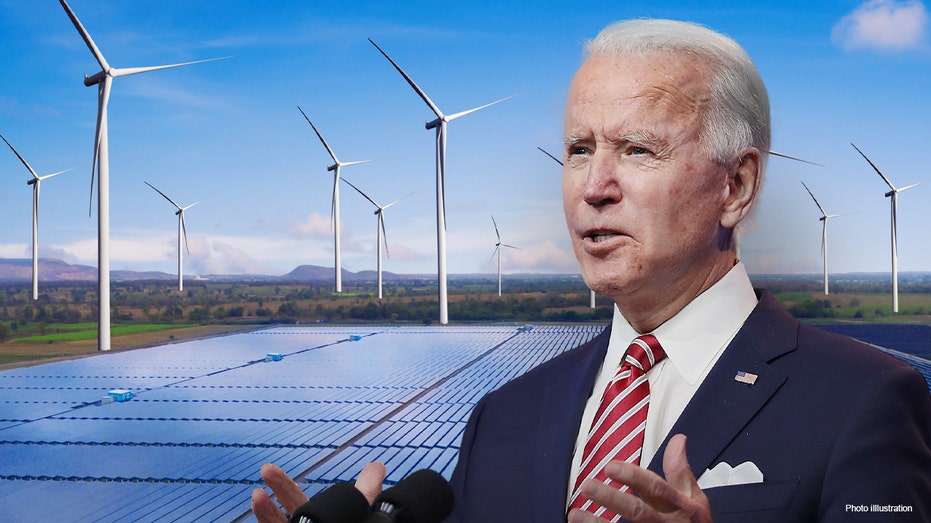The Biden administration is moving to lock up vast swaths of federal lands eligible for energy development in an effort to combat climate change and reduce carbon emissions.
The Bureau of Land Management (BLM) — which oversees 245 million acres of public lands and a subsurface mineral estate spanning 700 million acres — proposed a rule last week that would allow environmental organizations that are opposed to fossil fuel drilling and mining projects to lease land for conservation uses, thereby blocking resource development.
“The process announced today could fundamentally change the way BLM approaches land management,” said Athan Manuel, the director of Sierra Club’s Lands Protection Program. “As the largest manager of lands in the country, BLM must be a critical part of the U.S. strategy for taking on climate change and biodiversity loss.”
“We hope that this process leads to a new BLM that puts the needs of the climate and species ahead of profits for the oil and gas industry,” Manuel added.
WHITE HOUSE WANTS TO BOOST GREEN ENERGY IN COMMUNITIES REELING FROM COAL PLANT SHUTDOWNS
In addition to the Sierra Club, several other environmental groups that have similarly advocated for blocking fossil fuel drilling on federal lands also cheered the BLM proposal.
Wilderness Society president Jamie Williams said the rule would help better manage lands for “ecosystem resilience in the face of climate pressure.” The Defenders of Wildlife applauded the rule, noting that “heavy emphasis on energy development” has harmed wildlife populations and that 90% of BLM-managed lands are currently open to oil and gas leasing.
“We appreciate the meaningful conservation measures in this new rule that have the promise to advance biodiversity, climate resilience and equity on our public lands,” said Helen O’Shea, the director of the Protected Areas Project at the Natural Resources Defense Council.
BIDEN CONSIDERING CRACKING DOWN ON GAS CARS AFTER STRIPPING EVS OF TAX CREDITS
According to the BLM, the rule — aimed at putting conservation “on equal footing” with other uses overall — would improve the climate change resilience of public lands, conserve wildlife habitats and landscapes and preserve cultural and natural resources on public lands. Under its conservation leasing provision, organizations would be allowed to bid on land to conduct specific restoration or mitigation activities on.
However, Republican lawmakers and conservation experts criticized the rule and suggested it may conflict with existing laws.
“It seems like a reversion to the BLM 2.0 planning rule from 2016 from the Obama era,” Gabriella Hoffman, a senior fellow at the Independent Women’s Forum’s Center for Energy and Conservation, told Fox News Digital in an interview. “Very similar language to it, calling for a move away from prioritizing oil and gas development, in their words, grazing, mining, etc. — the so-called extractive practices that happen on public lands to a more public use model.”
“It could be understood that these environmental groups would heavily bid on these leases to create non-uses under the guise of conservation to stop oil and gas production, to stop grazing, mining, timber,” she continued.
BIDEN ADMIN ISSUES 20-YEAR MINING BAN AS IT TURNS TO FOREIGN SUPPLY CHAIN AMID GREEN ENERGY PUSH
Under the Federal Land Policy and Management Act of 1976, Congress established BLM’s so-called “multiple-use” and sustained yield mandate.
The legislation requires the BLM to open the lands it manages to various uses including energy development, grazing, recreation and mining.
“This rulemaking is yet another attempt by the Biden administration to pay lip service to radical environmentalists, and will lead to more land being locked up,” House Natural Resources Chairman Bruce Westerman, R-Ark., told Fox News Digital in a statement.
“Americans depend on this land for a variety of recreational and other important uses, and this clear attack against multiple-use requirements will further restrict responsible management of our federal lands and resources,” he continued. “I’ll continue advocating for science-based, commonsense land management policy in Congress and hope my colleagues on both sides of the aisle will do the same.”
BIDEN ADMIN MAKES STUNNING ADMISSION ON CLIMATE AGENDA IN LEAKED INTERNAL MEMO
And Senate Energy and Natural Resources Committee Ranking Member John Barrasso, R-Wyo., said the rule was a “clear violation of the law.”
“In the 1980s extremists used tree spikes to try and stop responsible management of public lands,” Barrasso said in a statement. “In 2023 they use decrees from Washington. Today’s announcement undermines the law’s multiple-use requirement for Bureau of Land Management lands.”
“Wyoming families depend on access to public lands for energy and critical mineral development, grazing, forest management, and recreation,” Barrasso continued. “The Biden Administration’s extreme unilateral action will kill multiple use. This is a clear violation of the law. I will do everything in my power to stop this proposal.”
Sen. Kevin Cramer, R-N.D., added that the Biden administration was “locking up acres under the guise of conservation” despite not being given authority by Congress to propose a new BLM standard for public lands.
“When you see these notorious radical environmentalist preservationist groups championing this rule, it calls into question whether it’s truly conservationist and if it’s going to allow for multiple use,” Hoffman told Fox News Digital. “My understanding is it will undermine both of those precepts.”
The BLM said it would initiate a 75-day public comment period to receive stakeholder input on the proposal.
























